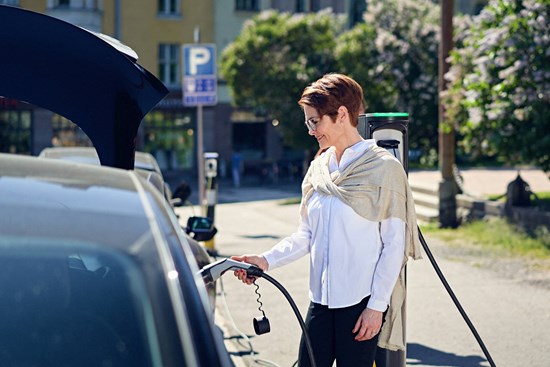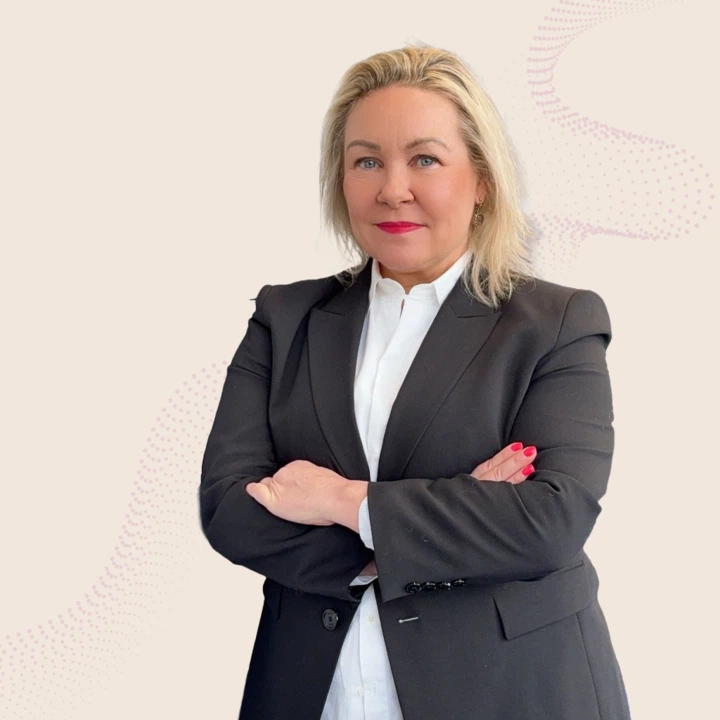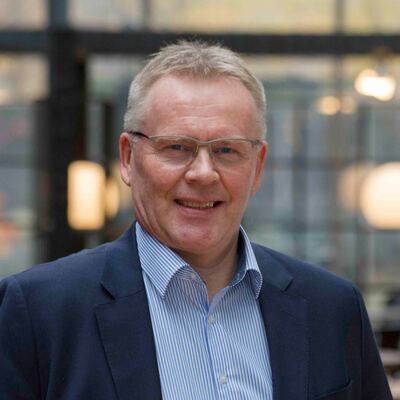Sustainable battery manufacturing and recycling in the EV era

Finland, ranked first in global happiness for eight consecutive years, is gaining attention for its sustainable initiatives. The battery market is rapidly expanding due to the spread of electric vehicles (EVs), with sustainability driving innovations across the industry. From manufacturing to recycling, efforts are focusing on reducing environmental impact. In particular, the reuse and recycling of used batteries has become a critical topic for the entire sector.
We spoke with Anna Nykänen, who is in charge of GTM (Go-to-market) at CeLLife Technologies, a provider of AI-powered battery diagnostics from Finland, and Ilkka Homanen who is in charge of the Business Finland's Hydrogen and Batteries Program. We will delve into their vision for a sustainable battery industry and why they are focusing on cooperation with Japan now.
Battery diagnosis completed in 5 seconds of cell life

Anna Nykänen, CeLLife Technologies GTM (Partnership Marketing), please tell us about your specific initiatives and projects
Our technology is used in the battery production line at our factory in Norway. The production line is automated by robots, and CeLLife's equipment diagnoses and inspects in about 5 seconds during the receiving process. The diagnostic data is immediately communicated to the robot, and any defective parts are removed. In the final process, the quality of the finished module is also checked to detect defective parts before shipment.
Thanks to our technology's fast and accurate measurements, we are able to fully automate our production lines. The manufacturing plant itself is also noted as a model case for the growth of the battery industry by the Norwegian government.
And expanding in Japan is one of our big goals. Japan has a thriving automobile industry, and its manufacturing technology is world-class. Therefore, we see great potential in collaboration with automakers and research institutes. In particular, we are convinced that the reuse and recycling of used batteries is an area where our technology can make a significant contribution.
What kind of collaboration do universities, research institutes, and startups have?
We are a university-based startup company born from the research results of the University of Tampere in Finland. The company was founded three years ago when two founding members were researching high-speed measurement at university. Currently, there are many R&D members from the University of Tampere, and there are also members who work while researching in the doctoral program, and the relationship with the university continues in various ways.
We also participate in the research program "BatCircle" led by Aerto University. This group aims to create a circular ecosystem for battery metals, and collaborates with players in different fields to develop the industry.
International cooperation is essential for a clean transition, but what kind of collaboration and partnership are you looking for?
There are three areas in particular that we are looking for collaboration. First, automation and system integration companies integrate our diagnostic technology into their production lines to achieve significant optimization of the entire process.
Next, we will jointly develop AI models with module assembly companies through testing and validation, and implement consistent quality control on the line from incoming inspection to module final quality.
In addition, in the fast-growing recycling sector, one of our customers is an EV module recycling company located in Portugal. Our technology allows you to instantly determine the type and condition of the module, and decide whether to dispose of it, reuse it, or reuse it. In the future, we will further improve the accuracy of analysis and take on the challenge of precise reuse on a cell-by-cell basis. Assembly and recycling are industries that will continue to grow in the future. We would like to create new value together through international cooperation.
Please give a message to everyone in Japan!
Our technology is characterized by its ability to perform fast and high-precision measurements and collect a large amount of measurement data in a short period of time. With our proprietary patented technology "Electrical Fingerprint (EFP)", the acquired data will be further advanced by combining it with AI models. In the future, it will also be possible to track individual battery life.
If you want to improve quality in battery manufacturing, reduce costs, or are interested in the aftermarket, such as recycling and reuse, we invite you to take a look at our products.
CeLLife Technologies
A Close Cooperation Ecosystem Realized by Small Countries

Ilkka Homanen,Head of Hydrogen and Batteries Program, Business Finland, please tell us about the your program
Business Finland's programs are selected based on thematic strategies for the growth of the Finnish industry, among which hydrogen and batteries are significant growth opportunities. Finland is at the forefront of decarbonization.
Finland's strengths are, first of all, its abundance of energy resources. The power generation potential of clean energy, including wind power, is very high, and the grid infrastructure is also in place. It also has abundant freshwater resources necessary for hydrogen electrolysis.
Another great strength is our talents. New industries such as batteries and hydrogen require people with specialized knowledge. Finland is also actively supporting the development of educational programs and the acceptance of human resources from abroad through "Work in Finland".
How do countries, companies, and research institutes cooperate with each other?
Finland is a small country with close proximity to major cities, so it is an environment where companies, universities, research institutes, and local governments can work closely together. Throughout my career, I have also worked with universities both domestically and internationally, and there is a natural culture of collaborating with research institutes and universities. This is a long-standing culture in Finland and a great strength.
Please tell us about your main initiatives and examples with Japan
There is a possibility that we can cooperate with Japan in a wide range of fields. In particular, there are many points of contact between Finland and Japan in the energy field, such as energy systems, hydrogen, and e-fuels.
A typical example is the Sumitomo Group, a subsidiary of Sumitomo Heavy Industries, which is based in Finland. The background is the acquisition of the Finnish company Foster Wheeler by the Sumitomo Group. In addition, Marubeni has invested in several Finnish companies, and Hitachi, Ltd. is developing a transformer business in the Vaasa region in western Finland.
In Finland, there is a research program called "BatCircle" jointly promoted by Aalto University and companies. Business Finland has provided financial support for three periods so far. For example, Terrafame, a company that produces sustainable raw materials, is leading research on the entire value chain, including recycling, for the raw material part.
International cooperation is essential for decarbonization, but what are the possibilities for Japan and Finland?
The Finnish battery industry has developed with the entire value chain in mind, from raw materials to the production of battery packs, to being utilized and recycled in various forms. Therefore, we can discuss and cooperate both in parts and in the whole. For example, a Finnish company called Metso is a global company that can provide the entire value chain and has many customers in Japan.
We are also participating in the Osaka-Kansai Expo. From Finland, battery recycling company Fortum, battery diagnostics company Celllife, as well as educational institutions and industry associations are also participating. The Finnish Battery Industry Association is also participating, and we will consider cooperation with Japan's BASC (Battery Supply Chain Council) in the future.
Please give a message to everyone in Japan!
Finland plays a very important role in the development of the European battery industry. We aim to foster a sustainable battery value chain, and we are always open to cooperation with countries around the world, as well as cohesion within Europe.
We can cooperate with Japan in a wide range of ways, from R&D to practical application, manufacturing, and sales. We always value active and open communication. We want to build a constructive relationship with each of our partners. Please feel free to contact us. We look forward to working with you on new collaborations.
The cooperation between Japan, which has a strong technological force, and Finland, which has a strong culture of innovation, has the potential to create significant synergies in the battery industry. For Japan, Finland is not just a partner, but a partner in creating a sustainable future together.
Hydrogen and Batteries Program
This news is a summary of an article from the NOTE platform.
Interview and text: Kazuma Tamura